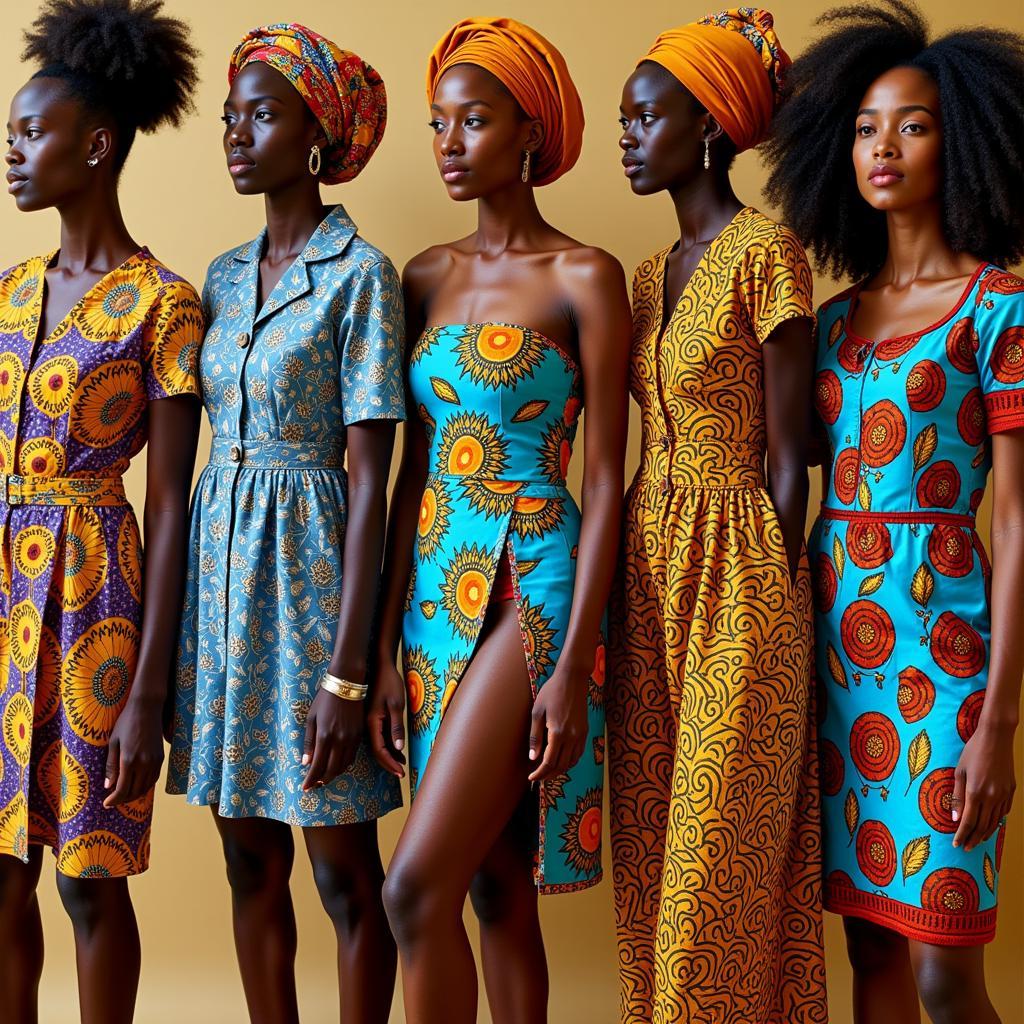Unraveling the Mystery of African Blood Types
African Blood Types present a fascinating and complex landscape, reflecting the continent’s rich genetic diversity and history. Understanding these blood types is crucial not only for medical purposes but also for anthropological research and gaining insights into human evolution.
The Diversity of African Blood Groups
Africa boasts the highest diversity of blood groups globally. While the ABO and Rh blood group systems are the most commonly known, several other blood group systems, like the Duffy, Kidd, and MNS systems, play significant roles, particularly in Africa. These less common blood groups often exhibit unique distributions within different African populations, further highlighting the continent’s genetic richness. For example, the Duffy blood group, which plays a role in resistance to certain types of malaria, shows significant variation across different regions of Africa. This variation in blood groups reflects the long history of human adaptation to various environmental pressures and diseases.
african american family structure essay
The distribution of African blood types isn’t uniform. The frequency of different blood types varies significantly across different ethnic groups and geographical regions. This uneven distribution underscores the complexity of human migration patterns and historical interactions within the continent. Understanding these patterns provides valuable information for medical research and tailoring healthcare strategies for specific communities.
What are the most common African blood types?
While blood type O is generally prevalent across Africa, its frequency varies across different regions. Blood type A is also relatively common, particularly in certain areas of East and Southern Africa. The frequency of blood type B is generally lower than O and A but still present, especially in West Africa. AB blood type is the least common across the continent.
The Significance of African Blood Types in Healthcare
African blood types play a crucial role in healthcare, particularly in blood transfusions. Matching blood types correctly is essential to prevent adverse reactions. The presence of rare blood types in some African populations presents a unique challenge, as finding compatible donors can be difficult. This underscores the importance of establishing comprehensive blood banks and promoting blood donation within African communities.
How do African blood types affect disease susceptibility?
Certain African blood types are associated with increased or decreased susceptibility to specific diseases. For instance, the Duffy-negative phenotype, common in many African populations, offers some protection against malaria caused by Plasmodium vivax. This highlights the intricate interplay between genetics, environment, and disease susceptibility. Research into these associations can pave the way for developing targeted healthcare interventions and preventive strategies.
“Understanding the nuances of African blood types is critical for developing effective public health strategies on the continent,” says Dr. Khadija Mohamud, a fictional leading hematologist based in Nairobi. “The diversity of these blood groups offers a unique window into human evolution and adaptation.”
Research and Future Directions
Research on African blood types continues to uncover valuable insights into human genetics and disease. Scientists are exploring the genetic basis of blood group variations and their implications for health. Further research is also needed to address the challenges of blood transfusions in Africa and ensure equitable access to safe and compatible blood products.
Why is further research on African blood types important?
Continued research on African blood types is crucial for improving healthcare outcomes and addressing health disparities. Understanding the distribution and clinical significance of different blood types can lead to the development of more effective diagnostic tools, treatments, and preventive measures.
“By studying the complex genetic landscape of African blood types, we can unlock crucial knowledge about human health and disease susceptibility,” adds Dr. Mohamud. “This research holds the key to developing personalized medicine approaches tailored to the specific needs of African populations.”
african american hair treatment
Conclusion
African blood types are a testament to the continent’s rich genetic diversity. Understanding these blood types is crucial for both healthcare and anthropological research. Further investigation into the intricacies of African blood types promises to unlock valuable insights into human evolution, disease susceptibility, and personalized medicine. This knowledge will be instrumental in improving healthcare outcomes for African populations.
FAQ
-
What is the rarest blood type in Africa? AB negative is generally considered the rarest blood type in Africa.
-
How does malaria affect African blood type distribution? The prevalence of certain blood types, like Duffy negative, is higher in malaria-endemic regions due to the protection they offer against certain malaria parasites.
-
Why is it important to know your blood type? Knowing your blood type is essential for safe blood transfusions and can also provide insights into your health risks.
-
Are there any blood types specific to Africa? While not exclusive to Africa, certain blood types like the Duffy negative phenotype are much more common in African populations.
-
How can I find out my blood type? You can determine your blood type through a simple blood test at a clinic or hospital.
-
How can I donate blood in Africa? Contact your local blood bank or hospital for information on blood donation procedures.
-
What are the challenges of blood transfusions in Africa? Challenges include limited resources, the prevalence of rare blood types, and ensuring the safety of blood products.
Have other questions about African cultures? Check out these related articles:
Need Support?
Contact us for 24/7 support. Phone: +255768904061, Email: kaka.mag@gmail.com or visit us at Mbarali DC Mawindi, Kangaga, Tanzania.

